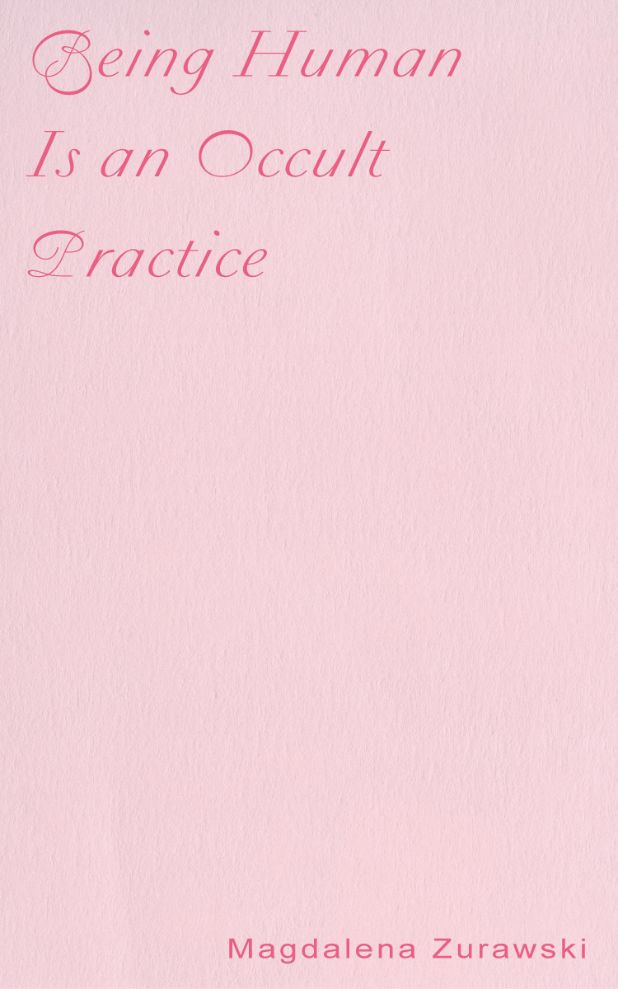The poem in its willingness to display emotional integrity demands in turn such integrity of its readers: “To articulate the feeling, putting it forth in a poem like this, brought others into the challenge.” But why? Why is one poet’s articulation of a particular affective reality via a poem a challenge to the reader’s life in Duncan’s view? The answer is that the poem is a site of self-recognition. It occasions in the reader the realization of “belonging to a community of feeling.” To understand the poem is to see one’s self in the experience and for this reason the poem becomes a means of species identification. To understand oneself as human in the moment of the poem is to understand oneself as sharing in the emotional life revealed therein. The poem teaches that there are others who feel as we do and it is to those others that we belong.

Being Human Is an Occult Practice
Magdalena Zurawski
October 2020
In the essay Being Human Is an Occult Practice, Zurawski argues that studying and sharing literature can function as a means of enriching the impoverished definition of “human” created by capitalist social relations. Beginning with an analysis of Robert Duncan’s description of the moment in his high school classroom when he finds himself called into a life in poetry, this essay explores the possibilities of the literature classroom at the very moment that it’s being dismantled by the neoliberalization of our university systems.
Zurawski argues that the literary holds a revitalizing potential precisely because of its capacity of exceeding the narrow imaginative aims of life within our contemporary social order.
This pamphlet is part of UDP’s 2020 Pamphlet Series: twenty commissioned essays on collective work, translation, performance, pedagogy, poetics, and small press publishing. The pamphlets are available for individual purchase and as a subscription. Each offers a different approach to the pamphlet as a form of working in the present, an engagement at once sustained and ephemeral. To view a full list of pamphlets, click here.
About the Author
Magdalena Zurawski is the author of the novel The Bruise, which won the Ronald Sukenick Award from FC2 in 2008 and a LAMBDA literary award in 2009, and the collection of poems Companion Animal, which was published by Litmus Press and won a Norma Faber First Book Award from the Poetry Society of America. The Tiniest Muzzle Sings Songs of Freedom (Wave Books) is her most recent poetry collection. Her poem/essay Don’t Be Scared is available as a chapbook from The Operating System.
As an undergraduate Magdalena studied with poets Rosmarie and Keith Waldrop, C.D. Wright, and Peter Gizzi. She has lived in Berlin, New York, Philadelphia, San Francisco, and Durham, NC where she ran the Minor American Reading Series. She is currently Associate Professor of English and Creative Writing at the University of Georgia, where she directs the Creative Writing Program.
Praise
Praise for Previous Work
Here, the act of writing itself is rendered indistinguishable from the act of understanding how one might live ethically and with compassion—the search for “a brightness / in all of this, that too-much that binds us”—making this a book that will be deeply felt by writers and readers alike.
Laura Eve Engel, American Poets
In the News
Links
Publication Details
ISBN: 978-1-946433-46-6
Pamphlet
Staple-bound. 32 pp, 5 x 8 in
Publication Date: October 15 2020
Distribution: Asterism Books (US), Inpress Books (UK)
Series: 2020 Pamphlet Series